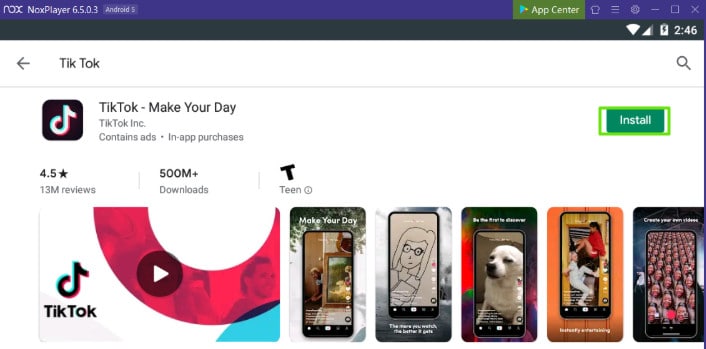

TikTok has said manual promotion only affects a tiny fraction of recommended videos.

TikTok and ByteDance employees also manually increase the number of views on certain content, according to a recent report in Forbes. Tiktok's editing features and powerful algorithm have kept it ahead of the game, attracting an army of creators and influencers as well as creating many of its own.īut the algorithm is opaque and often accused of leading users into digital content silos. TikTok's competitors quickly copied its short video format and continuous scrolling, but to little avail. Its rapid rise saw it grab more than $11 billion in advertising revenue last year, a threefold increase in a single year. With more than one billion active users it is the sixth most used social platform in the world, according to the We Are Social marketing agency.Īlthough it lags behind the likes of Meta's long-dominant trio of Facebook, WhatsApp and Instagram, its growth among young people far outstrips its competitors.Īlmost a third of TikTok users are between 10 and 19 years old, according to the Wallaroo agency. However, in January US federal employees were banned from downloading the app, with the European Commission following suit on Thursday to "protect the institution's data", it said.

The company has moved to soothe US fears, announcing in June 2022 that it would store all data on American users on US-based servers. TikTok was forced to admit ByteDance employees in China had accessed Americans' data but it has always denied turning over data to the Chinese authorities. The same year, US President Donald Trump threatened a ban and accused TikTok of spying for China-an idea that has gained ground in Washington. It was among the Chinese apps barred after deadly clashes on the border between the two countries, with New Delhi saying it was defending its sovereignty.

Global action against TikTok, owned by Chinese firm ByteDance, kicked off in earnest in India in 2020. So is TikTok a spying tool for Beijing, a fun app, or both? The European Commission is the latest organization to ban the app from its equipment, following similar moves in the United States.


 0 kommentar(er)
0 kommentar(er)
